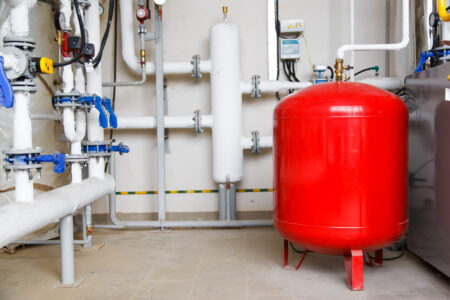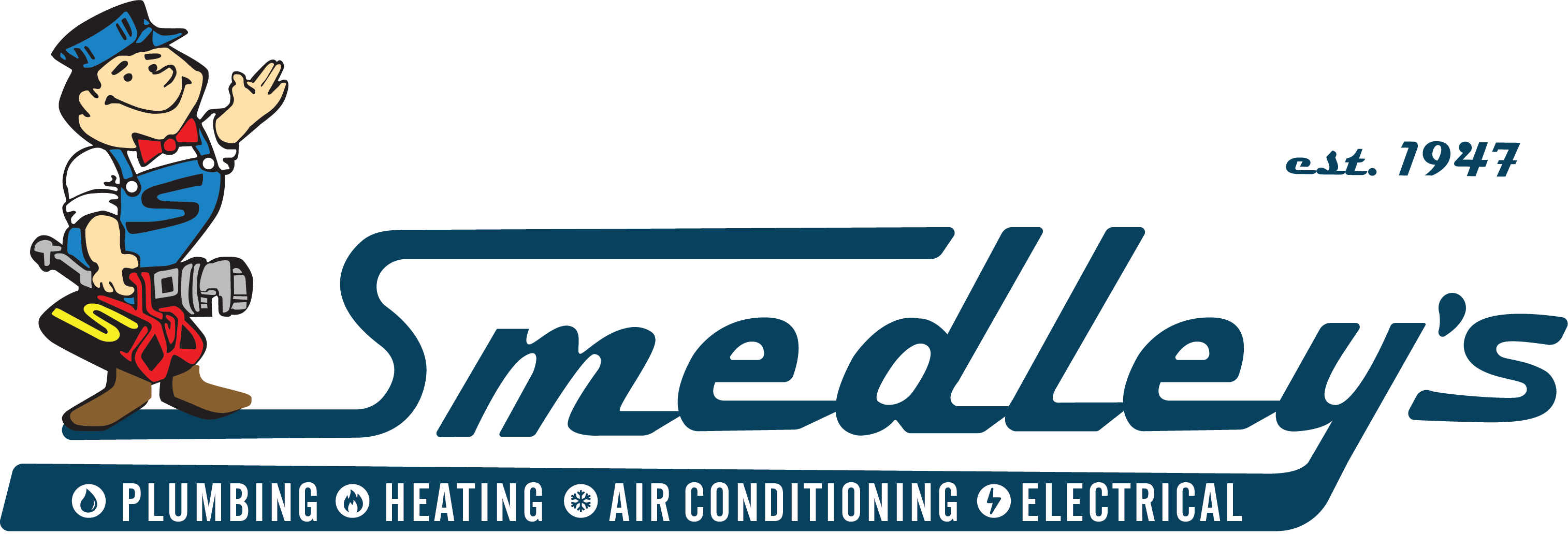
A boiler is one of the best heating systems you could have in your home. They are highly efficient, quite cost-effective to run, durable, and always evenly warm a home. However, like all other mechanical systems, boilers are susceptible to wear and tear, breakdowns, and other problems over time. Even though they take much longer to malfunction when compared to other systems, it is a matter of “when” rather than “if.” So, if you suspect that your boiler is having problems, you should act quickly and get it repaired. Here’s what to expect in the process.
Understanding Your Boiler
Simply put, a boiler is a closed vessel in which water is heated. The heat is typically provided by the combustion of fuels, like natural gas, oil, or electricity. This heated water is then circulated through pipes into your home’s radiators or underfloor heating system, providing warmth to the living areas. In the case of a water tube boiler, the water is converted to steam, which can power equipment or other systems.
Types of Boilers
Conventional Boilers (Regular and System Boilers)
These are the oldest and the simplest types of boilers. They consist of a heater and a separate hot water cylinder, commonly fed by a water tank in the attic. They can be gas, electric, or oil-fired.
Combi Boilers (or Combination Boilers)
These are newer and more efficient; they don’t need a hot water cylinder. They heat water directly from the mains supply, providing instant hot water on demand. They are more compact, ideal for smaller homes, and can be gas or electric.
Condensing Boilers
These are high-efficiency boilers that extract additional heat from the exhaust gases through a secondary heat exchanger. They can be either conventional or combi boilers and are known for their lower carbon emissions.
Signs Your Boiler Needs Repair
1. Unusual Noises
Strange noises, such as banging, whistling, or gurgling, can indicate anything from limescale buildup on the heating element to a faulty pump or valve. Tickling and clicking noises are a normal part of a boiler operation, but if they are excessive or continuous, it’s important to have your boiler checked.
2. Cold Spots
If you notice cold spots on your radiators or underfloor heating system, this could be a sign of air pockets in the system or a buildup of sludge and debris. These can cause uneven heating and reduce the efficiency of your boiler.
3. Leaks
Various issues, such as damaged seals, loose connections, or corrosion in the pipes, can cause leaks. They can lead to low water pressure and affect the performance of your boiler. Further, leaks risk damaging your property or causing electrical hazards.
4. Pilot Light Issues
The pilot light should be a steady blue flame. If it’s a different color or flickers, this could indicate a potentially dangerous carbon monoxide issue or a lack of fuel. Whichever the case, you need immediate professional assistance.
5. No Heating or Hot Water
The most obvious issue is when your boiler fails to produce either heat or hot water, significantly impacting your comfort. This could result from a variety of issues, including a broken thermostat, airlock, or pump failure.
6. High Energy Bills
If you notice your energy bills have suddenly increased without any significant change in your usage, it could be due to an inefficient boiler. As boilers age, they can lose their efficiency and require more fuel to produce the same results.
7. Foul Smells
Burnt metal or plastic smells from your boiler means that a part is overheating or melting. A rotten egg smell or an odor akin to sulphuric acid could indicate a gas leak or an issue with the ventilation. If you have microbial growth in your water heaters, you’ll get a sewage-like smell from your boiler.
8. Water Discoloration
If your hot water is coming out with unusual colors or sediments, your boiler might be the culprit. A buildup of minerals in the tank or a corroded pipe can result in discolored water. It’s essential to get this issue addressed as it can lead to further damage and impact the quality of your hot water.
The Repair Process
Initial Assessment
When you call in a boiler repair professional, the first step will be a comprehensive assessment of the issue. Your technician will likely ask about the symptoms you’ve observed and may run a basic diagnostic to pinpoint the problem.
Diagnosis and Repair Plan
The technician will provide you with a repair plan, which should include the scope of the work, the cost, and an estimated timeline for completion. Make sure to ask any questions you have and get a clear understanding of the issue and the proposed solution. The more you know, the easier it will be for you to quickly identify any red flags or discrepancies later on.
Repair and Replacement
If your boiler needs replacement parts, the technician will have to order them before moving forward with the repair. This can add time to the overall process if the parts are not readily available. If it is a quick fix, the technician may be able to resolve the issue on the spot.
Final Inspection
After your boiler has been repaired, the technician will perform a final inspection to ensure everything is in working order. This includes checking for leaks, testing the pressure levels, and ensuring that all safety features are functioning correctly.
What to Expect During Boiler Repair
Timeline and Duration
The duration of a boiler repair can vary widely based on the nature of the problem. Simple issues might be resolved in a couple of hours, while more complex repairs could take several days.
Disruption to Routine
During the repair process, you’ll likely face some inconvenience. You might be without heat or hot water for a period of time, and there might be disruption to your daily activities if the repair requires substantial work.
Cost Considerations
Boiler repairs can cost more than expected, especially if major components need to be replaced. It’s important to understand the costs upfront and to ask for a breakdown of the bill to know what exactly you’re paying for.
Safety Precautions
Safety should always be the main concern during a boiler repair. Your repair technician should be meticulous in following safety protocols, including those specific to gas appliances.
Importance of Timely Repairs
Prompt boiler repairs can prevent heat and safety issues. For instance, in a case where your boiler is emitting carbon monoxide, immediate repair can prevent potential poisoning and even death.
Additionally, addressing a problem early on can also save you money in the long run by preventing further damage to your boiler and its components. Your system is more likely to last longer while working efficiently if all its parts are in pristine condition most of the time.
More importantly, immediate repair means you don’t have to go without heat or hot water for long periods of time, which can be especially difficult during colder months. The entire purpose of having a boiler in your home is to enhance your level of comfort, and timely repairs are necessary to ensure that’s always the case.
Call Us Today for a Professional Repair Service
If you live in Layton, UT, and surrounding areas, call Smedley Service today for prompt and reliable boiler repair services. Our team of experienced technicians will diagnose the issue, provide a thorough explanation of the problem, and offer solutions to get your boiler up and running again in no time. And if you happen to also need indoor air quality solutions, plumbing work, and any AC services, we’ve got you covered. Don’t hesitate to reach out to us for all your home comfort needs.




